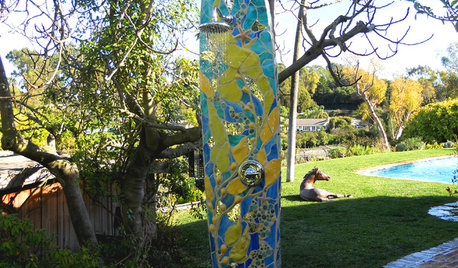Limits of so-called 'evidence based medicine'
apollog
14 years ago
Related Stories

FUN HOUZZHouzz Call: Tell Us About Your Dream House
Let your home fantasy loose — the sky's the limit, and we want to hear all about it
Full Story
CLOSETSHouzz Call: Is Your Closet a Storage Powerhouse?
We want to see how you are making the most of your closet storage areas. Post pictures and tell us how you’ve organized them
Full Story
HOUZZ CALLHouzz Call: Show Us Your 8-by-5-Foot Bathroom Remodel
Got a standard-size bathroom you recently fixed up? We want to see it!
Full Story
BATHROOM DESIGNHouzz Call: Have a Beautiful Small Bathroom? We Want to See It!
Corner sinks, floating vanities and tiny shelves — show us how you’ve made the most of a compact bathroom
Full Story
BATHROOM MAKEOVERSHouzz Call: Tell Us About Your Bathroom Remodel!
Did you recently redo your bath? Please tell us about your upgrade and what it took to get there
Full Story
TILESo Many Reasons to Love Cement Tiles
You’ll notice their beautiful patterns right away, but cement tiles have less obvious advantages too
Full Story
ARTHouzz Call: Show Us Your (Functional?) Art
We want to see how art plays a part in your home
Full Story
GREEN BUILDINGHouzz Call: What Have You Salvaged for Home Use?
If your floors, furniture, exterior materials or other home elements have a past life, we'd like to hear the story
Full Story
KITCHEN DESIGNHouzz Call: What’s Cooking in Your Kitchen?
Most of us turn to recipes, videos and culinary shows when we cook. Where do you set your cookbook, tablet or TV screen?
Full Story
FUN HOUZZDoes Your Home Have a Hidden Message?
If you have ever left or found a message during a construction project, we want to see it!
Full StorySponsored
Industry Leading Interior Designers & Decorators in Franklin County
More Discussions






rusty_blackhaw
eibren
Related Professionals
Quincy Landscape Architects & Landscape Designers · Pottstown Landscape Contractors · Allentown Landscape Contractors · Fairview Landscape Contractors · Framingham Landscape Contractors · Mercedes Landscape Contractors · Saint John Landscape Contractors · St. Louis Landscape Contractors · Tacoma Landscape Contractors · Hueytown Landscape Contractors · Aldine Carpenters · Goulds Carpenters · Snoqualmie Carpenters · New Lenox Roofing & Gutters · Red Bank Roofing & Guttersrusty_blackhaw
apollogOriginal Author
rusty_blackhaw
apollogOriginal Author
goshen
rusty_blackhaw
brendan_of_bonsai
novice_2009
brendan_of_bonsai
novice_2009
brendan_of_bonsai
novice_2009
brendan_of_bonsai
rusty_blackhaw
novice_2009